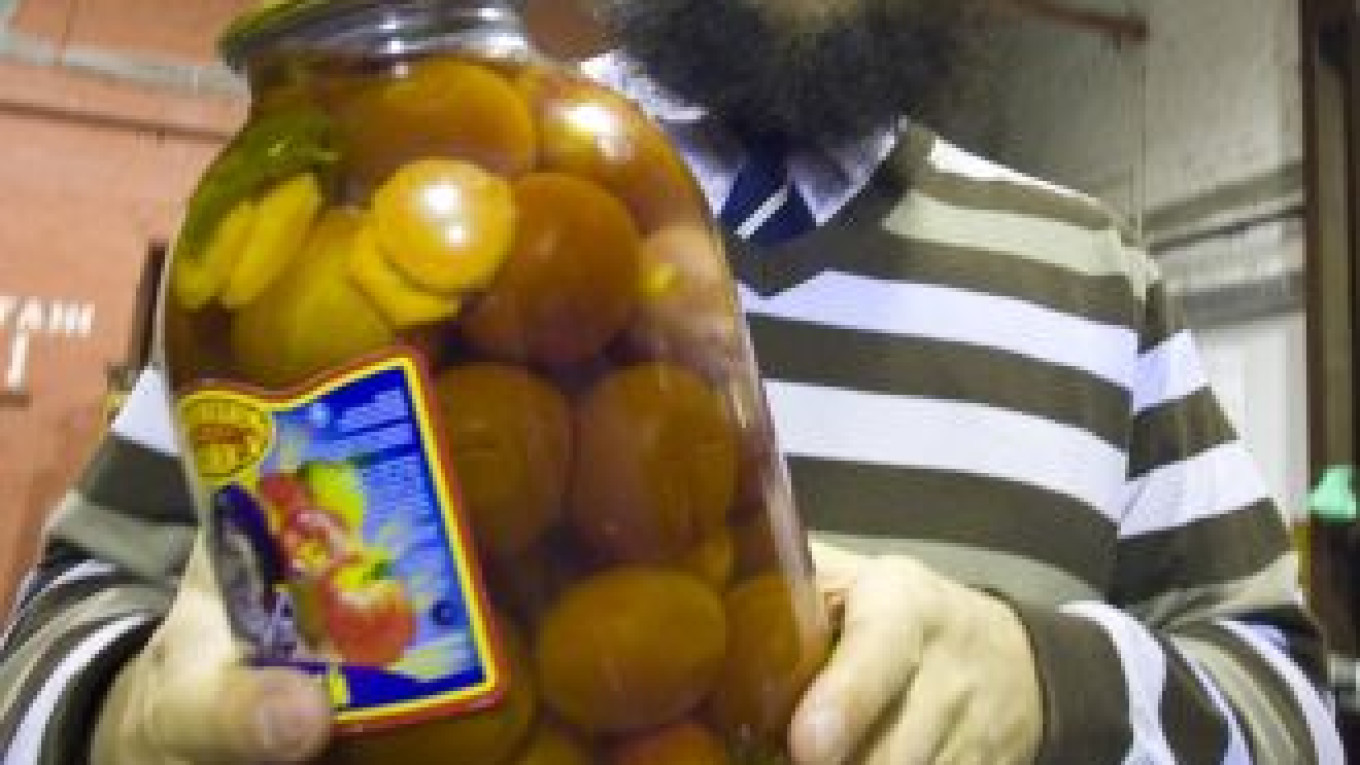A carrot is an unlikely villain for a horror story, but for retailers promoting organic food here, a sweaty package of cut up orange-colored roots can have sinister implications.
Viktor Semyonov, founder and chairman of the Belaya Dacha agricultural holding and former State Duma deputy, told a harrowing story of migrant workers, free of sanitation checks, sitting on their knees in basements and putting carrots into packages labeled "ecologically friendly."
There is still no official definition of "organic food" in Russia. This lapse in regulation is putting some local producers at a disadvantage, since they find it hard to compete with unscrupulous rivals who take advantage of the loophole.
"There is no Russian standard. So of course everything is bunched into one category under a single certificate. What is the stimulus for the producer to make an effort to produce eco food if he can't get this recognized and any recognition he does get is meaningless," said Andrei Yakovlev at the Fresh Russia conference on Thursday. Yakovlev is the general director of the high-end Globus Gourmet supermarket chain, in which more than half of the food sold is labeled organic.
In the West, food labeled as organic must be produced without the use of such artificial products as synthetic pesticides, industrial solvents, chemical fertilizers and additives.
The Agriculture Ministry is trying to formulate an official standard. Its working group published a draft bill last week that proposes some definitions for organic products. Interested parties can submit suggested changes to the bill until Dec. 16, after which the document will be sent on for further approvals, a spokesperson at the ministry said.
Retailers are watching the changes closely since organic food sales are growing.
The Russian market for organic food is expected to be around $100 million this year, said Alexander Konovalov, head of Ecocluster, an association of eco-food suppliers.
The demand for such eco-friendly items at the high-end Globus Gourmet supermarkets is growing by 30 to 40 percent annually, Yakovlev said. Other retailers noted that sales of these products even grew during the crisis years.
But local producers are getting few of the benefits. According to Konovalov, about 85 percent of the organic-labeled foods in Russian stores are imported. Locally grown organic food does not necessarily translate into better food, but retailers in general are optimistic that helping local producers will also raise the quality of products on their shelves.
Retailers and local food producers welcomed the government's initiative to standardize the industry. Russia has a lot of resource potential to develop the eco-friendly market, Konovalov said. There are already up to 40 million hectares of Russian land that can be considered ecologically clean because this earth was unused for two decades, he said.
"Everything tells us that we should be using this wealth in the interest of the country and the interests of people's health," Konovalov said.
Related articles:
A Message from The Moscow Times:
Dear readers,
We are facing unprecedented challenges. Russia's Prosecutor General's Office has designated The Moscow Times as an "undesirable" organization, criminalizing our work and putting our staff at risk of prosecution. This follows our earlier unjust labeling as a "foreign agent."
These actions are direct attempts to silence independent journalism in Russia. The authorities claim our work "discredits the decisions of the Russian leadership." We see things differently: we strive to provide accurate, unbiased reporting on Russia.
We, the journalists of The Moscow Times, refuse to be silenced. But to continue our work, we need your help.
Your support, no matter how small, makes a world of difference. If you can, please support us monthly starting from just $2. It's quick to set up, and every contribution makes a significant impact.
By supporting The Moscow Times, you're defending open, independent journalism in the face of repression. Thank you for standing with us.
Remind me later.


